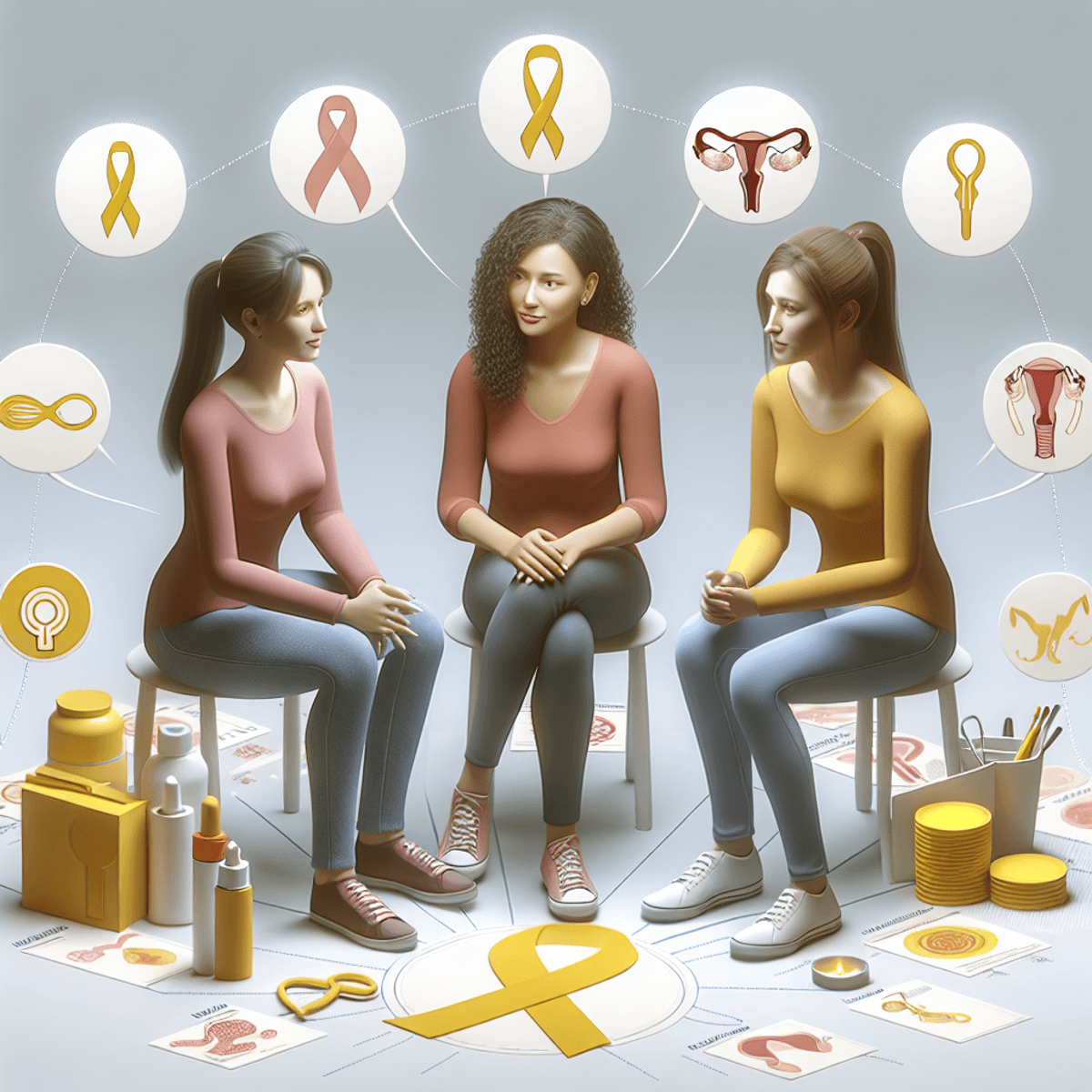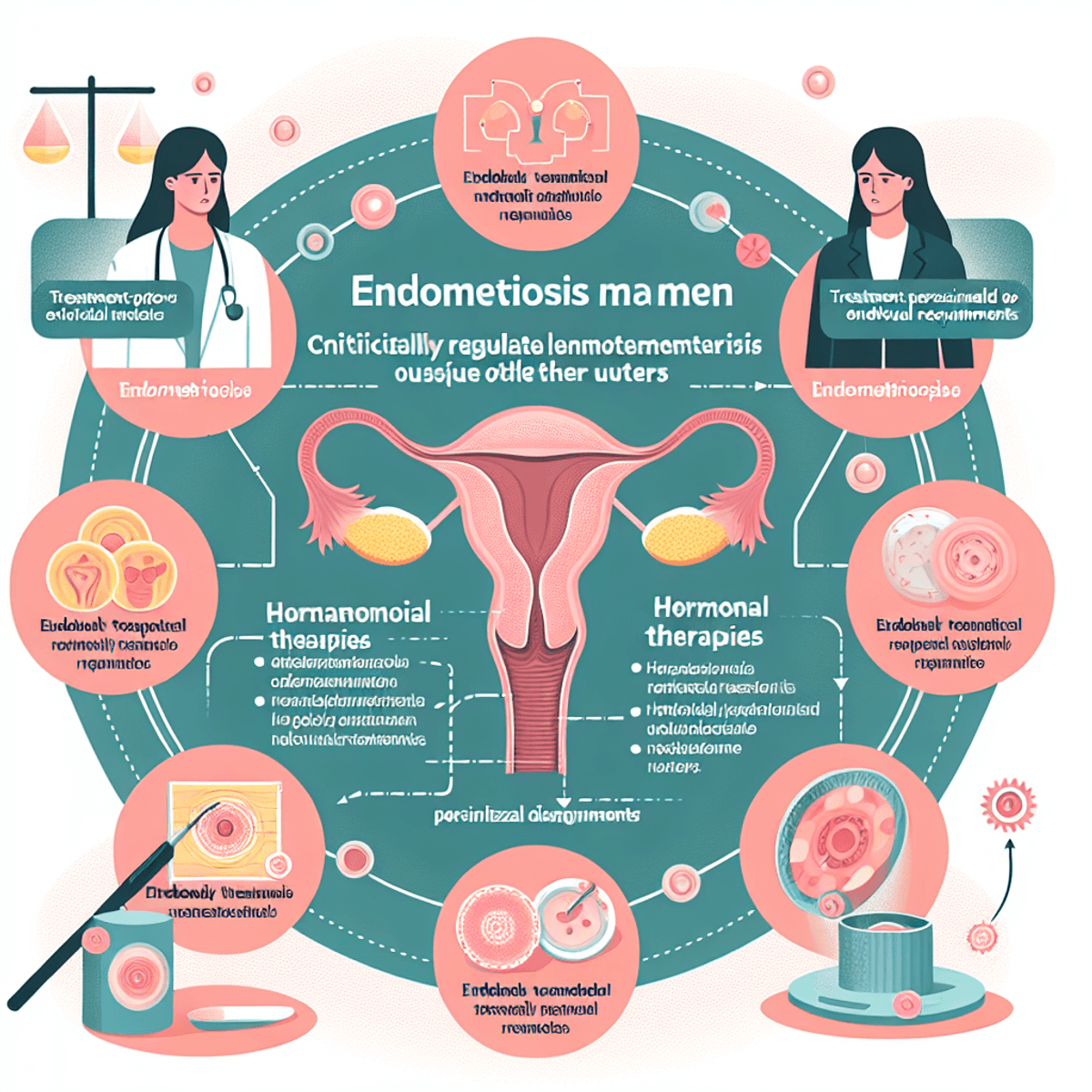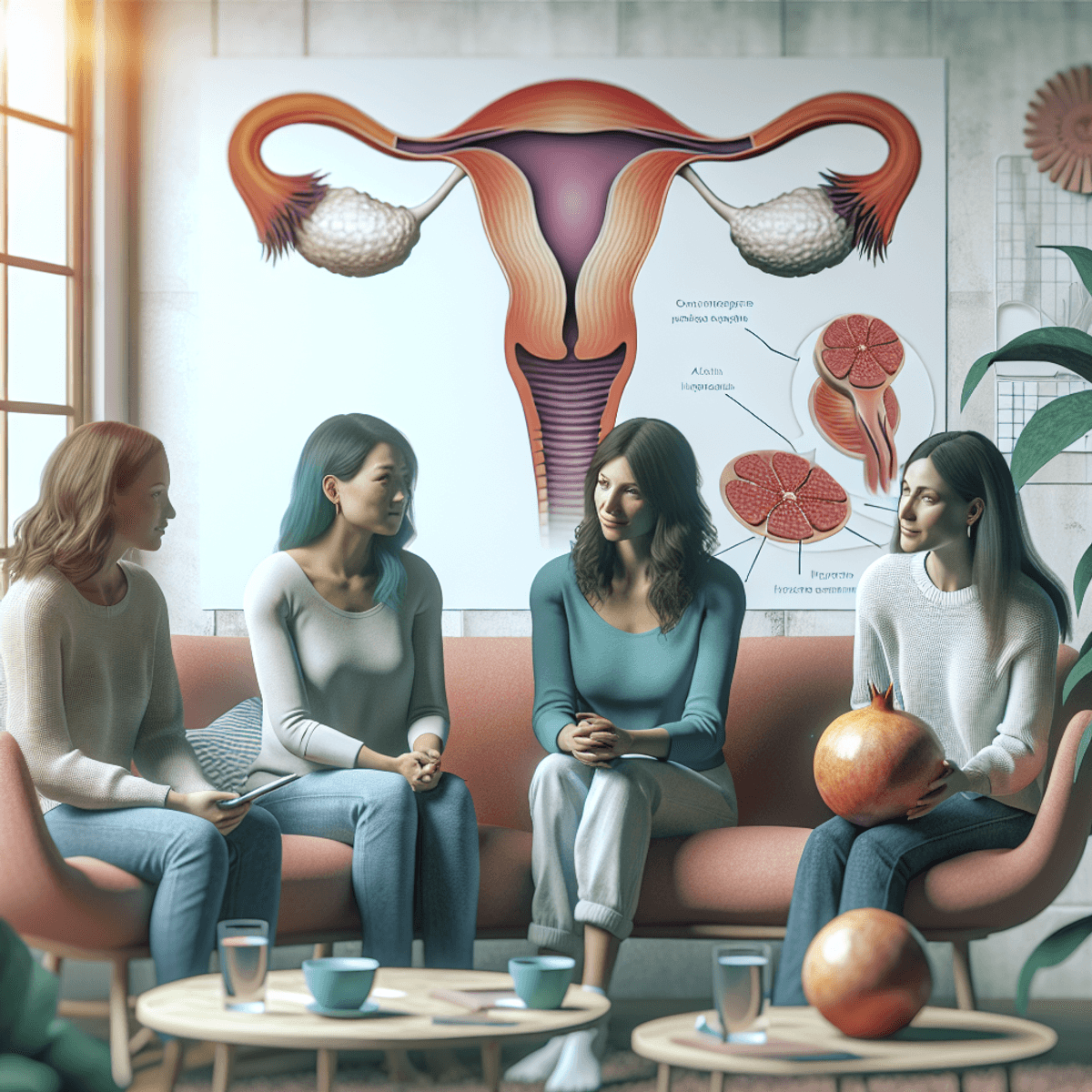Services
Endometriosis Impact On Infertility
30% of Women Who are Victims of Infertility Suffer From Endometriosis
Introduction
Infertility is a common issue affecting many women, significantly impacting their reproductive health and overall well-being. Among the various causes of infertility, endometriosis stands out, affecting approximately 30% of those struggling to conceive. This chronic condition involves the growth of tissue similar to the uterine lining outside the uterus, leading to severe pain and potential complications in fertility.
Disha Arogya Dham Ayurveda and Natural Chikitsalya, a renowned Ayurveda center in India, offers a holistic approach to treating infertility, particularly cases related to endometriosis. By integrating traditional Ayurvedic practices, Disha Arogya Dham addresses both physical and emotional aspects of reproductive health.
Key topics discussed in this article:
- Understanding endometriosis and its impact on fertility
- The role of inflammation and scar tissue formation in infertility due to endometriosis
- Holistic treatments at Disha Arogya Dham for managing endometriosis-related infertility
- Challenges in diagnosing endometriosis and available management options
- Use of assisted reproductive technologies (ART) like I.U.I or I.V.F.
- Importance of emotional support for couples facing infertility challenges
Understanding Endometriosis and Its Impact on Fertility
Endometriosis is a long-term condition where tissue similar to the lining inside the uterus grows outside of it. This abnormal tissue growth can occur on various reproductive organs such as the ovaries, fallopian tubes, and the outer surface of the uterus. Unlike normal endometrial tissue, which is expelled during menstruation, this displaced tissue has no way to exit the body. This leads to inflammation, scar tissue formation, and cysts.
Common Symptoms of Endometriosis
Women with endometriosis often experience:
- Pelvic pain
- Irregular menstruation
- Painful periods (dysmenorrhea)
- Pain during intercourse
- Chronic fatigue
These symptoms can vary in intensity and may be mistaken for other conditions like pelvic inflammatory disease or irritable bowel syndrome.
The Global Impact of Endometriosis
Statistics reveal that approximately 10% of women of reproductive age are affected by endometriosis, equating to around 190 million individuals worldwide. Among these women, between 30% to 50% experience infertility issues.
How Endometriosis Affects Fertility
Endometriosis significantly impacts fertility due to several factors:
- Structural Changes: The presence of endometrial-like tissue can cause structural changes in the reproductive organs.
- Inflammation: Persistent inflammation leads to a hostile environment for both sperm and eggs.
- Scar Tissue Formation: Scar tissue or adhesions can obstruct the fallopian tubes or distort pelvic anatomy, impeding the natural fertilization process.
Women with endometriosis often have lower monthly chances of getting pregnant compared to those without the condition. The combination of these factors creates substantial barriers to conception, making it crucial for affected individuals to seek specialized medical care.
Understanding these complexities highlights the importance of accurate diagnosis and effective management strategies for women suffering from this debilitating condition.
How Inflammation and Scar Tissue Formation Cause Infertility in Endometriosis
Endometriosis is often associated with inflammation, which can lead to a series of problems affecting fertility. When endometrial tissue grows outside the uterus, it can trigger an inflammatory response from the body. This ongoing inflammation can damage the nearby reproductive organs.
Scar tissue formation is another significant factor. Chronic inflammation leads to the development of scar tissue, or adhesions, which can affect the structural integrity of reproductive organs:
- Fallopian Tubes: Adhesions may block or distort the fallopian tubes, preventing sperm from reaching the egg.
- Ovaries: Scar tissue around the ovaries can interfere with ovulation by restricting the release of eggs.
- Pelvic Anatomy: General distortion of pelvic anatomy due to adhesions can hinder the normal functioning of reproductive organs.
These structural changes reduce fertility rates among women with endometriosis. Studies have shown that women with this condition have lower monthly fecundity rates compared to those without it, highlighting the critical role both inflammation and scar tissue play in infertility.
Understanding these mechanisms underscores the importance of early diagnosis and targeted treatments aimed at reducing inflammation and minimizing scar tissue formation.
Disha Arogya Dham: A Holistic Approach to Treating Infertility Caused by Endometriosis
Disha Arogya Dham is a top Ayurveda center in India, specializing in treating infertility cases, especially those related to endometriosis. Also known as “Natural Chikitsalya,” this center combines traditional Ayurvedic practices with modern medical knowledge to offer complete care.
Ayurvedic Practices for Managing Infertility
Ayurveda for infertility at Disha Arogya Dham emphasizes a holistic approach that targets both the physical and emotional aspects of reproductive health. The treatments offered aim to restore balance within the body, enhancing overall well-being and fertility outcomes.
Key Ayurvedic practices include:
- Herbal Medicines: Customized herbal formulations are used to regulate hormonal imbalances, reduce inflammation, and alleviate symptoms of endometriosis.
- Detoxification Therapies: Panchakarma treatments help detoxify the body, remove impurities, and improve reproductive function.
- Diet and Lifestyle Modifications: Personalized dietary plans and lifestyle changes support hormonal balance and enhance fertility.
- Yoga and Meditation: These practices address the emotional stress that often accompanies infertility, promoting mental well-being and reducing anxiety levels.
Holistic Benefits
The holistic approach at Disha Arogya Dham Ayurveda and Natural Chikitsalya ensures that treatments are not solely focused on symptom relief but also on improving the patient’s overall quality of life. This comprehensive care model includes:
- Physical Healing: Addressing the root causes of infertility through natural methods.
- Emotional Support: Providing counseling and stress management techniques to help couples navigate their infertility journey.
By combining these elements, Disha Arogya Dham offers a multifaceted treatment plan aimed at optimizing reproductive health and enhancing fertility outcomes for women suffering from endometriosis.
Ayurvedic Solutions for Endometriosis-Related Infertility at Disha Arogya Dham
Disha Arogya Dham uses traditional Ayurvedic practices to tackle the complex challenges of endometriosis-related infertility. Their natural treatments are designed to address both the symptoms and underlying causes of the condition.
Specific Ayurvedic Treatments
1. Herbal Medicines
- Ashwagandha: Known for its anti-inflammatory properties, Ashwagandha helps reduce pelvic pain and inflammation.
- Shatavari: This herb supports reproductive health by balancing hormones and enhancing ovarian function.
- Guggul: Effective in reducing scar tissue and promoting detoxification, Guggul aids in managing endometrial lesions.
2. Detoxification Therapies (Panchakarma)
- Virechan (Purgation Therapy): Helps in eliminating toxins from the body, thus reducing inflammation and promoting overall well-being.
- Basti (Medicated Enema): Focuses on cleansing the lower abdomen, alleviating pelvic congestion, and improving reproductive organ function.

Supporting Reproductive Health
Ayurvedic treatments at Disha Arogya Dham aim to restore balance within the body:
- Hormonal Regulation: Herbal medicines like Shatavari and Ashoka help in regulating menstrual cycles, which is crucial for improving fertility.
- Reducing Inflammation and Pain: Anti-inflammatory herbs such as Turmeric and Ginger alleviate chronic pain associated with endometriosis.
- Enhancing Blood Circulation: Therapies like Abhyanga (oil massage) improve blood flow to reproductive organs, promoting healing and reducing adhesions.
These holistic approaches not only address physical symptoms but also emphasize emotional well-being. Yoga and meditation are integrated into treatment plans to reduce stress, which can further enhance fertility outcomes. By focusing on both body and mind, Disha Arogya Dham offers a comprehensive solution to women struggling with endometriosis-related infertility.
Diagnosis Challenges and Management Options for Women with Endometriosis-Related Infertility
Diagnosing endometriosis can be tough because its symptoms often overlap with other conditions like PCOS (Polycystic Ovary Syndrome) or blocked fallopian tubes. These conditions share common symptoms such as pelvic pain, irregular menstruation, and infertility, making it difficult to pinpoint the exact cause without thorough investigation.
Imaging Techniques for Accurate Diagnosis
Accurate diagnosis often relies on advanced imaging techniques:
- Ultrasound: While useful in detecting ovarian cysts, it may not always identify smaller endometriotic lesions.
- MRI (Magnetic Resonance Imaging): Provides a more detailed view of the reproductive anatomy and can help locate endometrial tissue outside the uterus.
Both methods play a critical role in distinguishing endometriosis from other gynecological conditions.
Treatment Options
Endometriosis management includes various treatment options tailored to individual needs:
Hormonal Therapies
Hormonal treatments aim to reduce or eliminate menstruation, thus slowing the growth of endometrial tissue. Common options include:
- Birth Control Pills: Regulate hormone levels and reduce menstrual flow.
- GnRH Agonists: Suppress ovarian hormone production, leading to a temporary menopause-like state.
- Progestin Therapy: Counteracts estrogen’s effects on endometrial tissue.
Surgical Interventions
In cases where hormonal therapies are ineffective, surgical intervention may be necessary:
- Laparoscopy: A minimally invasive procedure used to remove or destroy endometrial tissue while preserving fertility.
- Hysterectomy: Reserved for severe cases where other treatments have failed. This involves removing the uterus and possibly other reproductive organs.
Combining these approaches can provide relief from symptoms and improve fertility outcomes. However, it’s essential to consult with healthcare providers to determine the most suitable treatment plan based on individual circumstances.
Understanding these diagnostic and management challenges underscores the importance of personalized care in addressing endometriosis-related infertility. Transitioning from diagnosis to effective treatment requires a comprehensive approach involving both medical expertise and patient-centered strategies.
Assisted Reproductive Technologies (ART) for Women with Endometriosis-Related Infertility
For women struggling with infertility due to endometrial lesions or adhesions, assisted reproductive technologies (ART) offer viable solutions. Two primary methods stand out:
1. Intrauterine Insemination (I.U.I.)
This process involves placing sperm directly into a woman’s uterus during ovulation. It bypasses the cervix and increases the number of sperm that reach the fallopian tubes, making it easier for fertilization to occur.
2. In Vitro Fertilization (I.V.F.)
This technique involves extracting eggs from the ovaries and fertilizing them with sperm in a laboratory. The resulting embryos are then transferred back into the uterus. I.V.F. is particularly beneficial for women whose endometriosis has caused significant damage to their reproductive anatomy.
Both I.U.I. and I.V.F. present opportunities for conception when traditional methods prove ineffective due to the structural challenges posed by endometriosis.
Disha Arogya Dham Ayurveda and Natural Chikitsalya integrates these modern techniques with holistic Ayurvedic treatments, offering a comprehensive approach to managing infertility. By combining ART with traditional Ayurveda, they address both physical impediments and underlying health imbalances, enhancing overall fertility outcomes.
Understanding these options allows women to make informed decisions about their reproductive health, ensuring they explore every available pathway to parenthood.
Emotional Support for Couples Facing Infertility Challenges
Emotional support for couples facing infertility challenges is crucial, especially when dealing with conditions like endometrial disorders. The emotional and psychological toll of infertility can be overwhelming. This journey often involves:
- Stress and Anxiety: The uncertainty and repeated disappointments can lead to heightened stress levels.
- Depression: Persistent feelings of sadness and hopelessness are common among couples struggling with infertility.
- Strained Relationships: The emotional burden can strain even the strongest relationships, leading to conflicts and misunderstandings.
Key elements of emotional support include:
- Counseling Services: Professional counseling can help couples navigate their emotions, providing strategies to cope with stress and anxiety.
- Support Groups: Engaging with others undergoing similar experiences fosters a sense of community and reduces feelings of isolation.
- Mindfulness Practices: Techniques such as meditation and yoga can alleviate mental strain and promote emotional well-being.
Addressing the emotional aspects is as important as the medical treatments, ensuring a holistic approach to overcoming infertility challenges.
Conclusion
Addressing women’s health issues is crucial, especially conditions like endometriosis that significantly impact reproductive health. By increasing awareness and understanding of these conditions, you can make informed decisions about your health and fertility.
- Explore holistic approaches: Consider facilities like Disha Arogya Dham for a comprehensive treatment plan that combines Ayurvedic practices with modern medical expertise.
- Seek medical expertise: It’s essential to consult healthcare professionals for accurate diagnosis and tailored treatment options.
Empowering yourself with knowledge and support can lead to better management of endometriosis and improved fertility outcomes.
FAQs (Frequently Asked Questions)
What is endometriosis and how does it affect fertility?
Endometriosis is a chronic condition characterized by the presence of endometrial-like tissue outside the uterus, leading to symptoms such as pelvic pain and irregular menstruation. It can impact fertility by causing structural changes in the reproductive organs, which may hinder conception.
How does inflammation and scar tissue formation relate to infertility caused by endometriosis?
Inflammation and scar tissue formation due to endometriosis can significantly impact fertility rates. The inflammation can disrupt normal reproductive function, while scar tissue may block or damage reproductive pathways, making it more difficult for women to conceive.
What holistic approaches does Disha Arogya Dham offer for treating infertility related to endometriosis?
Disha Arogya Dham employs a holistic approach that combines Ayurvedic practices with natural treatments aimed at managing infertility related to endometriosis. This includes herbal medicines, detoxification therapies, and support for both physical and emotional well-being.
What are some common diagnostic challenges faced by women with endometriosis-related infertility?
Women with endometriosis often face diagnostic challenges due to symptom overlap with other conditions like PCOS or blocked fallopian tubes. Accurate diagnosis may require imaging techniques such as ultrasound or MRI to differentiate between these conditions.
What assisted reproductive technologies (ART) are available for women experiencing infertility due to endometriosis?
For women dealing with infertility related to endometrial lesions or adhesions, assisted reproductive technologies such as artificial insemination (I.U.I.) or in vitro fertilization (I.V.F.) are viable options that can help facilitate conception despite underlying challenges.
Why is emotional support important for couples facing infertility challenges?
Emotional and psychological support is crucial during the journey towards parenthood, especially when dealing with conditions like endometriosis. It helps couples cope with the stress and emotional turmoil associated with infertility, fostering resilience and better overall well-being.
Discover more from DAD Ayurveda
Subscribe to get the latest posts sent to your email.









